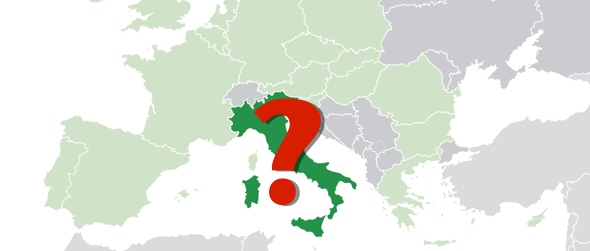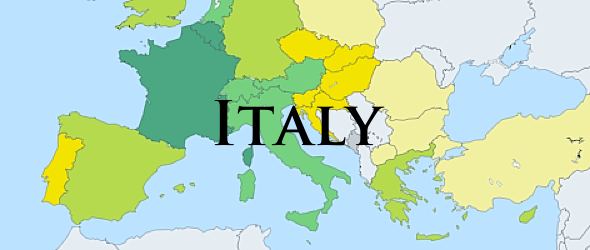I’ve lost count of the number of times my dear English language students have commented on how odd the English language seems when it’s compared to Italian.
I guess this is a normal reaction.
When confronted with a new language, some learners tend to think that the order of the words is more or less the same, it’s just the spelling and the sounds which are different. Such hopeful people soon discover that things are rarely this simple. Translating literally usually produces a kind of linguistic minestrone, which can be virtually unintelligible.
Literally Incomprehensible
Italian is not too bad when translated word by word, but try putting Japanese directly into English and you will soon discover from the resulting mess that literal translation produces results which are literally incomprehensible.
As I remarked before, sometimes Italian is not too bad when translated literally, aside, that is, from that insidious everyday verb – piacere – which means ‘to like’.
Piacere is dastardly verb which twists and distorts the (my) Anglo-Saxon mindset – much like all those exceedingly odd phrasal verbs which leave many Italians wondering whether they will ever manage to get by (!) in English. The Italian verb piacere probably has the same effect on anyone trying to get to grips with Italian.
Easy English, Odd Italian

In English, saying, for example ‘I like wine‘ is pretty easy. Not in Italian, oh no.
In Italian it’s ‘mi piace il vino‘. Try translating that literally, word for word, and the result is messy to say the least. The literal translation is like this: ‘me it likes the wine‘. You might come away wondering whether it means you like wine or wine likes you.
In practice, though, using the Italian verb piacere is not too difficult.
To say you like something, you just say ‘mi piace’ and add a singular definite article of the appropriate gender (‘il’ for wine – yes, this can be fiddly), along with what you like – vino. Easy, really – ‘mi piace il vino‘.
If what you like is plural, such as when you are expressing general ‘likes’, you say ‘mi piacciono’ plus the things you like, along with a plural definite article. An example: ‘I like trains‘, in Italian is: ‘mi piacciono i treni‘.

Stop reading, start speaking
Stop translating in your head and start speaking Italian for real with the only audio course that prompt you to speak.
Carry out a literal execution of that, and you have: ‘Me they like the trains‘ – which sounds a little like something Tarzan might have uttered in a film: ‘me like trains, Jane’. Drop the ‘they’ and the ‘the’ and you can grasp the sense.
Mind Boggle Mode
Now, let’s move into super mind boggle mode and attempt to put this admittedly uncommon sentence, which foxed me years ago, into Italian:
- I like the sun, but the sun doesn’t like me.
In Italian, this is:
- mi piace il sole ma al sole non piaccio.
Literal translation, I think:
- me it likes the sun but to the sun do not I like
Arrgh! What a mess for my Anglo-Saxon programmed grey matter! “Aiuto!” – which means ‘help!’ in Italian.
And just why am I twittering on about this everyday Italian verb? Because even now after umpteen years in Italy, this innocuous everyday Italian verb still causes me headaches! And to this day I go around annoying my Italian friends whining, from time to time, about this Italian verb and its illogical structure. No, I don’t like piacere!
Avoidance Manoeuvres
I tend to avoid using the verb piacere if I have to say anything moderately complex and attempt to use ‘normal’ alternatives like ‘amare’ – to love, or ‘odiare’ to hate – both of these Italian verbs function in much the same way as ‘like’ in English. Needless to say, the thoughts I attempt to transmogrify into spoken Italian words end up not dissimilar to minestrone soup. Sometimes, as an alternative, I can get away with uttering: ‘non è un gran che’ – ‘it’s not great’.
Piacere also has a sibling (evil twin, more like) in the form of mancare – to miss (something or somebody, but not trains, planes etc – (you literally lose trains/planes in Italian)).
Right, enough. I’m off to dream up some dastardly phrasal verb activities with which to wreak my linguistic revenge. I’ll have a spot of sadistic fun watching Italians writhe while trying to get their heads round these idiomatically idiotic – for Italians – verbs. Cue evil head laughing off.
Happy language learning!
PS I have tried campaigning for ‘piacere’ and ‘mancare’ to be transformed into ‘normal’ verbs, but Italians think I’m nuts! I love language, I really do, honest. Io piaccio l’Italiano too (with apologies, maybe, to passing Italians and horrified teachers of Italian).






